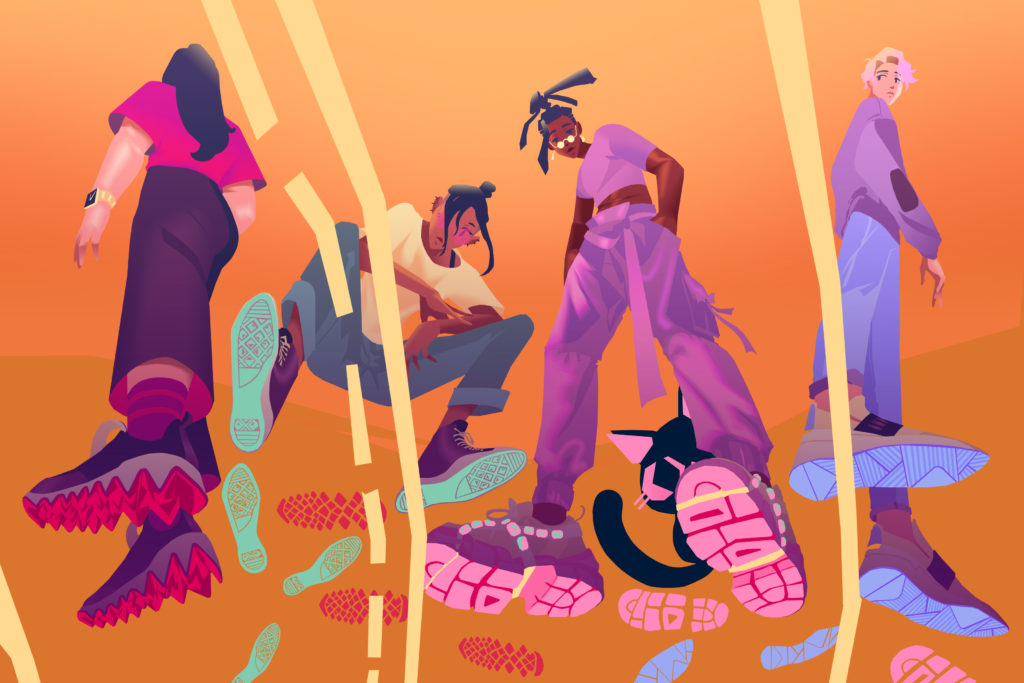
Provided by Team OFK
We Are OFK’s Marketing Belies a Larger Issue for Indie Games
We Are OFK feels like a game hand-made for creatives in their late twenties to early thirties, and based on the development team, I’d argue it is. But I didn’t realize that at all until I actually started playing it for review. This game’s marketing up to release was off to the point of almost being deceptive, though I don’t think there was any malice behind it. Rather, the recent rise in demand for “wholesome” media, especially from and about queer people, was probably a significant driving force. But regardless of Team OFK’s intentions with this approach, in practice it alienated the very people it wanted to connect with.
Audiences were first introduced to this fictional band in 2020 when they performed at the Game Awards that year. This was quickly followed up by other appearances during the Summer Game Fest/E3 festivities in 2021, including showing off a trailer in the Wholesome Direct. Appearing in such a specifically branded showcase, alongside its pastel art style, and parasocial audience interactions immediately set a saccharine, artificial tone for what We Are OFK would be.
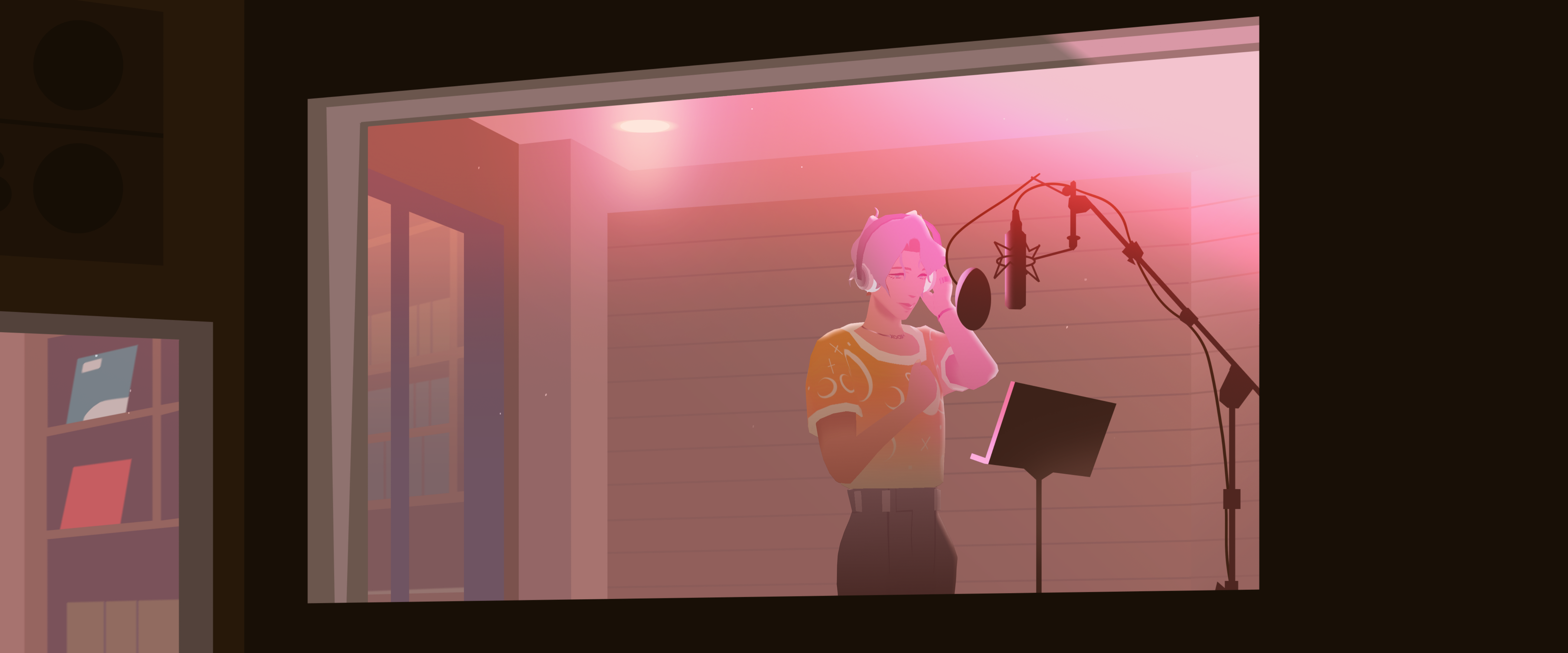
From having OFK vocalist Luca stream on the “band’s” Twitch channel semi-regularly, to encouraging Twitter followers to flirt with him on his in-character personal account, to their debut performance at the 2020 Game Awards, the virtual band OFK has pretty much always had a shaky relationship with the border between fantasy and reality. That is part of the game’s pitch, as it’s framed as a biopic about the band. But this murkiness doesn’t do We Are OFK any favors in terms of showing off what it’s actually about.
In the game itself, Luca is a notorious flirt whose obsession with falling in love is a prevalent issue in his life. It damages his other relationships and pretty actively causes a lot of his own misery. Presenting his character as just someone “fun and flirty” for fans to interact with flattens Luca, and further distances expectations from the game’s heavier reality. Combined with the branding inherent to the perception of Wholesome Games alumni, we got a distorted image of We Are OFK.
It's me Luca Le Fae💜OFK vocalist & co-songwriter! Talk to me @OFKluca about sondheim, neruda, brunch, and britney. And please, PLEASE feel free to flirt😘 constantly falling in love forever xo
👄Tuesday Flirts https://t.co/o01SOlCqY2
🎙️Our Song https://t.co/s0HyZbIjmJ pic.twitter.com/yLIyHspVWh— OFK (@OFKband) March 18, 2021
This may sound derisive towards the overall project of Wholesome Games, but my feelings are less directed than that. The desire for so-called “wholesome,” “cozy,” or “casual” games is clearly more prevalent than ever, and there’s nothing wrong with trying to fill a need and help out your often underrepresented colleagues. But whether they meant to or not, the creators of Wholesome Games as a larger brand initiative have drawn a moral line in the sand that can, and often does, backfire.
“Wholesome Games have staked unique ground, and so their choices invite criticism about what is and is not included,” Ruth Cassidy wrote for Unwinnable. “If they’re positioning themselves as counterculture, what are they saying about culture to start with?”
“It’s the sort of rhetorical knot that doesn’t please anybody, because there’s a limit to how much Wholesome Games can litigate what people consider wholesome games. With the two entangled, ideas about wholesomeness flow back to the brand, not from them. While Wholesome Games are allowed to curate and promote whatever they like, the cultural assumption that wholesomeness is non-violent is going to follow them, even if they post an FAQ saying some violence is cozy sometimes.”
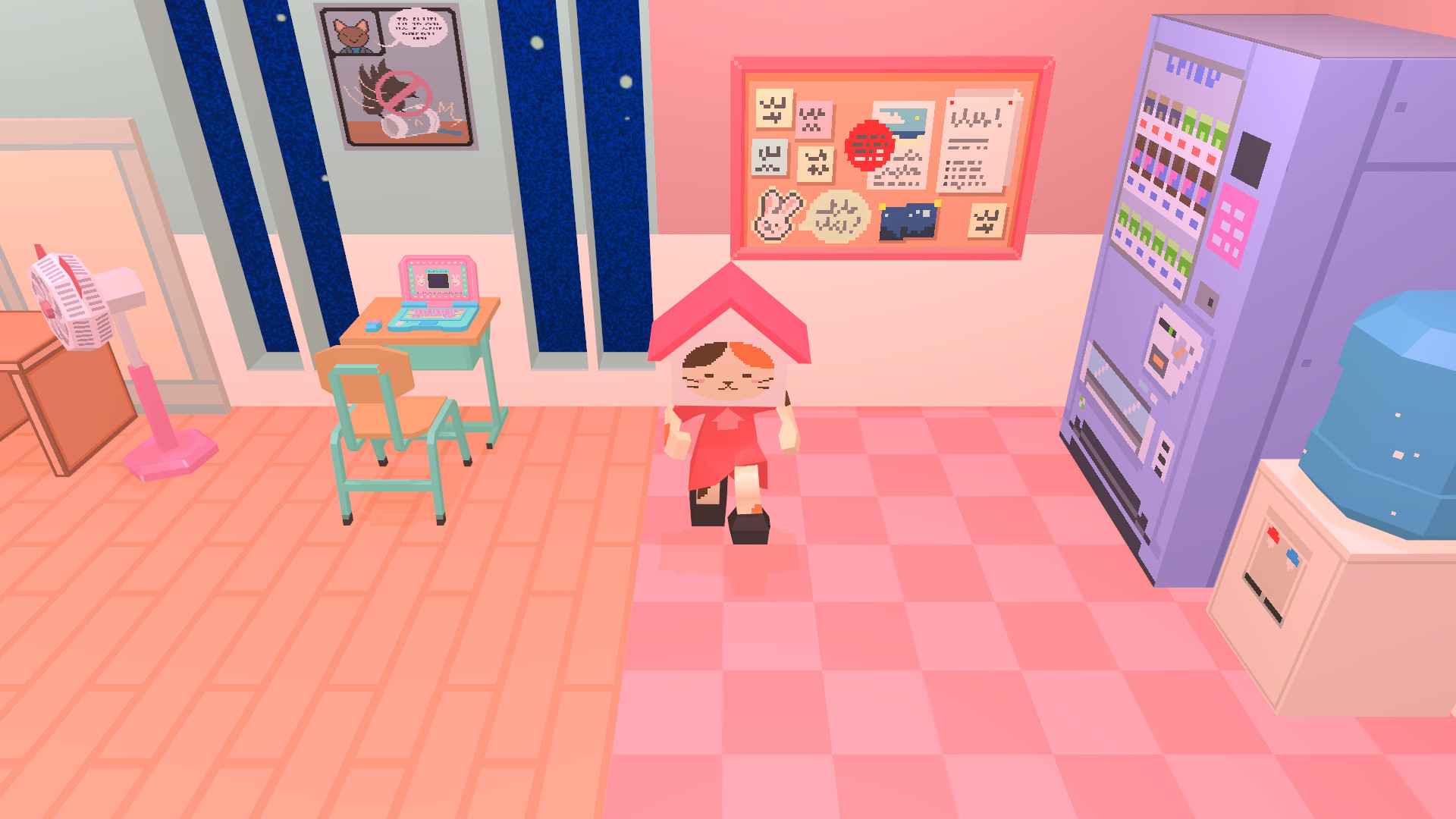
By holding up the candy-colored, soft edged, anthropomorphic animal, chill-beats-to-study-to genre up as the peak of what is wholesome, and therefore radical for the games industry – a decidedly moralistic way of putting things, when you get down to it – Wholesome Games has put itself and the entire industry in a bind when it comes to marketing, and in the crosshairs of overly tender fans looking to be infantilized.
The tension between what is and is not Wholesome™ has already caused viral issues for developers that have become endlessly repeated discourse within online circles – the most notorious, of course, being Boyfriend Dungeon. When the game’s original content warnings proved insufficient, developers at Kitfox Games changed them thanks to audience feedback. But that feedback was quickly drowned out by fans who were angry about the decidedly unwholesome nature of Boyfriend Dungeon’s main plot, and wanted it to be changed to anything from an optional story beat, to completely cut from the game.
A year later, other indie developers have had to take a variety of lessons from this incident, including that regardless of their actual plot contents, players are now conditioned to automatically view anything with pastel colors and a soft art style as something feel-good and family-friendly. This obviously isn’t ideal for developers looking to experiment with alternate art styles without pigeonholing the content of their games.
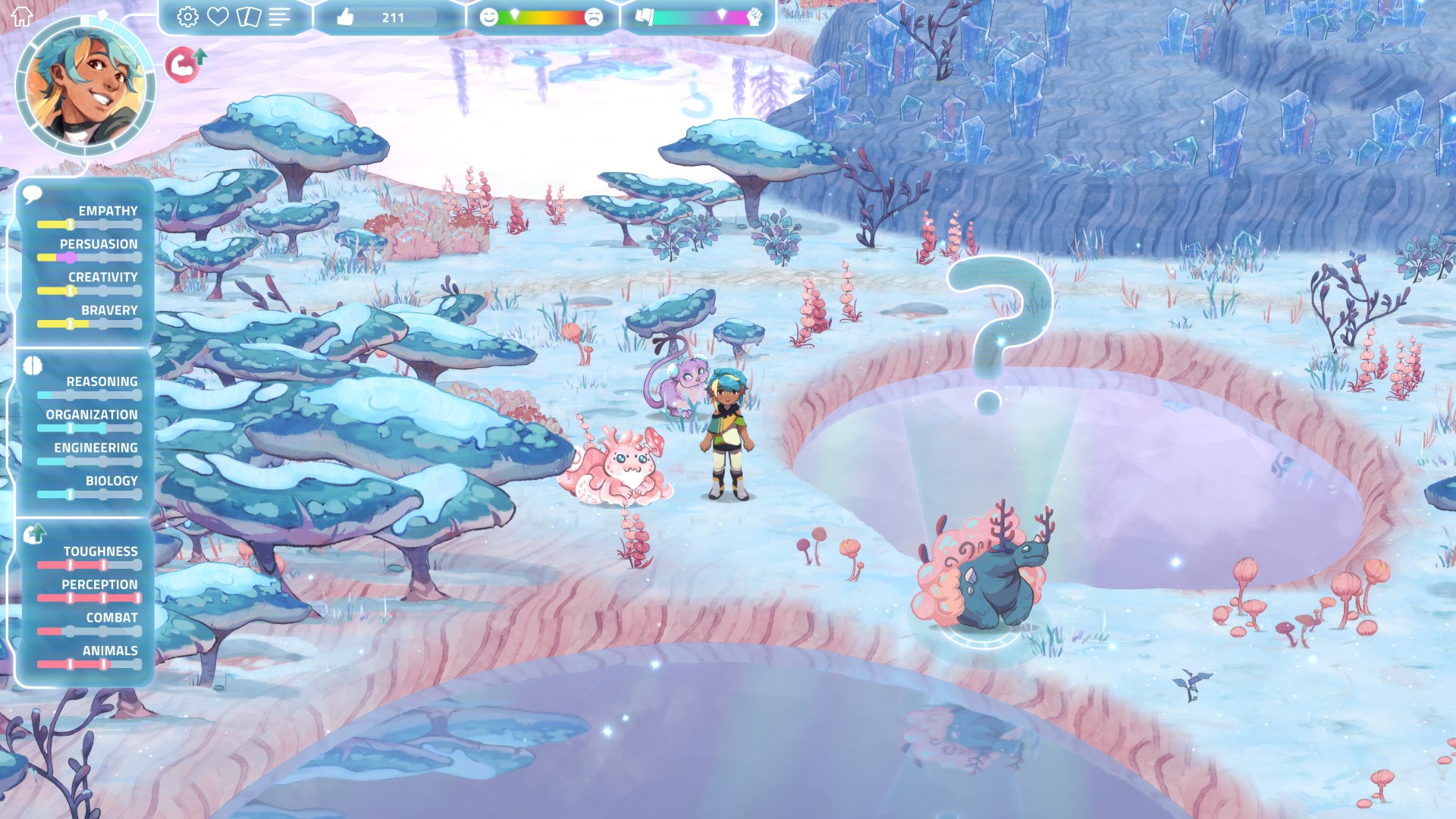
“I was concerned that people were just not really getting it,” I Was a Teenage Exocolonist developer Sarah Northway told Fanbyte. “But also just concerned that no matter what we do with the beautiful art style, the pastel colors — a lot of people are going to read it as a very easy game, like a game that’s not going to make you cry or get upset or whatever. It’s like, ‘no, no, we are actively trying to make our players feel a large range of emotions, and some of them are quite negative.'”
I’m certainly not immune to this conditioning, as We Are OFK’s art style definitely made me more inclined to believe that the game would be more in the vein of a Sayonara Wildhearts than the warm but real story about figuring your shit out as a creative it actually is. But the way Team OFK decided to approach this game’s marketing really did nothing to communicate that in the first place.
let’s build a summer playlist together – drop a song and I’ll tweet the link when it’s done
— SUNNYD (@sunnydelight) June 7, 2022
It’s no secret that being a “brand” is essential to getting eyes on something, whether it’s a product, a piece of art, or the one of the many hybrids of the two. Corporate giants like Dominoes, Sunny D, and plenty of others are constantly looking to gain social media clout and audience favor by inserting themselves into our lives through overly familiar posting and encouraging parasocial attachments. This is all, of course, with the aim of getting into our pockets. Video games certainly aren’t an exception, but by leaning so deeply into this kind of marketing, We Are OFK undercuts its own message about trying to create art you genuinely care about under capitalism.
Though I was originally baffled by why Team OFK would have taken this approach with the game, thinking about incidents like what happened with Boyfriend Dungeon makes things clearer. After all, this is a renewed age of militant online fandom the likes of which only heyday Tumblr vets can fathom. Many fans want to blur the lines of reality with their favorite media, and be told they are morally good for doing so. I don’t know that I can blame developers for leaning into this as a defensive measure against this type of fandom.
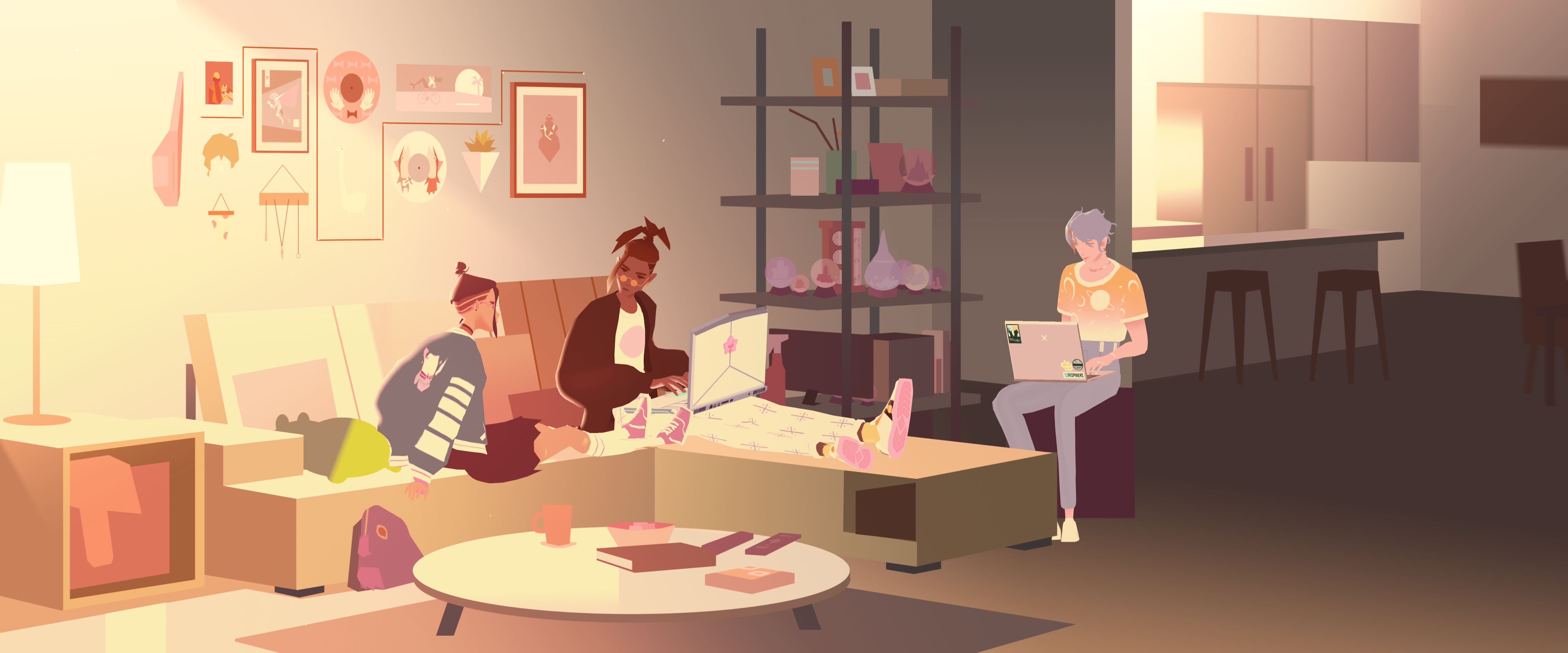
That said, I hope that we are able to support those who choose to not take this approach just as fervently. While seemingly sneaking darker, more adult themes through the self-appointed wholesomeness police could certainly be seen as some kind of win, the fact that developers feel the need to hide the pill to create this kind of work and still find commercial success is telling. Those on the other side, who don’t see soft aesthetics as inherently neutral or wholesome, are also made to suffer by reinforcing notions of what kinds of games and stories are morally good, intentionally or not.
Video game fans actively looking to branch out beyond the likes of Call of Duty and The Last of Us is a good thing, but we need to be careful about what behaviors we’re encouraging while we help them do so. By forcing games into such tight boxes with highly charged perceived stakes, we set creators across the board up to fail while continuing to reward fans for puritanical, controlling behavior. Seeing as the people behind these games are often marginalized folks, we have to be aware of the targets being put on them by fandom spaces. But developers need to be wary of feeding the beast themselves, even out of self-preservation.
If you like what we do here at Uppercut, consider supporting us on Patreon. Supporters at the $5+ tiers get access to written content early.






2 thoughts on “We Are OFK’s Marketing Belies a Larger Issue for Indie Games”